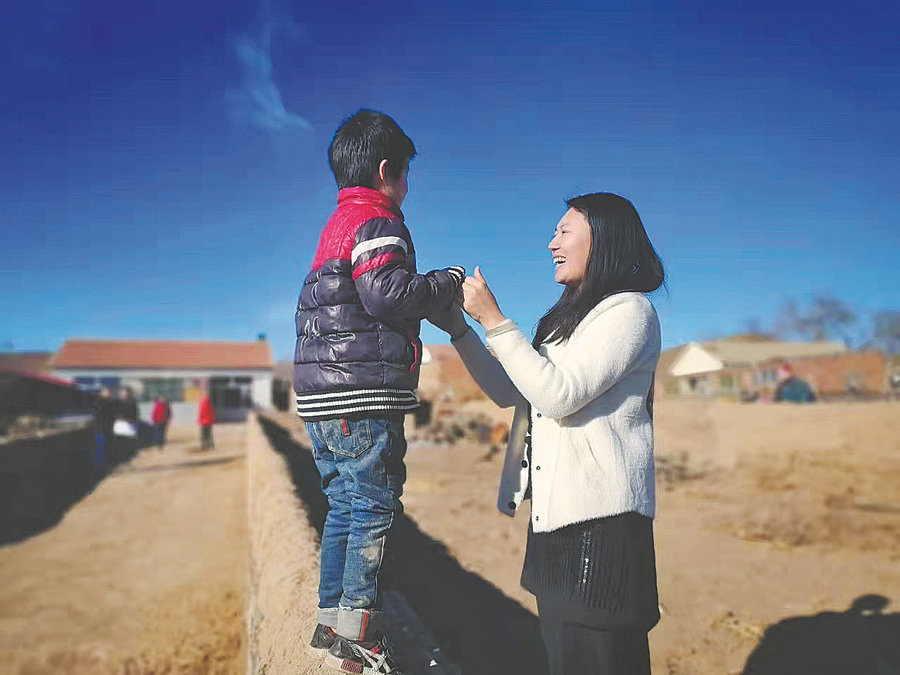

School of hope
When Wang opened the kindergarten in 2005, she met a boy there who always played alone in the corner and never looked at the other children. Nicknamed Yangyang, the boy immediately caught Wang's attention. After talking to his mother, Wang learned that Yangyang was previously rejected by several schools before arriving in Wang's classroom and his mother had tried to hide Yangyang's autism to get the boy enrolled in her kindergarten.
"It was the first time I heard the term. I can't forget the mother's helpless eyes, which were full of tears and desperation," she says, adding that, although she didn't know what difficulties she had to overcome, she decided to help the woman and her son.
Learning about autism online and consulting centers for autism rehabilitation in some of China's major cities, such as Shenzhen and Beijing, Wang developed an autism intervention therapy program, covering fields of behavior, language and sensory integration.
In speech exercise, Wang tried to teach Yangyang to say "mom", but it was not easy for the boy, who was nonverbal.
"I kept repeating the word, gently trying to coax him into conversation, but most attempts failed. There was not even a response. Then, when the boy was 7, he said 'mom'. I couldn't believe my ears and asked again, he repeated the word clearly, although he still wouldn't look at me," Wang says.
It was a vivid scene that she will never forget, and at that moment, Wang couldn't hold back her tears and took the boy into her arms.
"It was then that I decided to transform my kindergarten into a rehabilitation center for autistic children," Wang says.
Yangyang studied at the center for four years and now, as a 21-year-old man, he can stay at home alone when his mother is out working, according to Wang. Since Yangyang, hundreds of children with autism have entered the school, which charges a fee of 2,500 yuan (about $344) per student every month.
"From Yangyang's story, I can tell how a child's improvement can change a family. Although my efforts are limited, their change shows that I can make a difference and that has encouraged me to help more people," Wang says. "These groups have faced so many challenges, such as high stress parent-child communication, stigmatization and financial pressure. Even a little support means a lot to them."
A 2019 study in CNS Spectrums — the journal of the Neuroscience Education Institute published by Cambridge University Press — found that parents of children with autism were susceptible to adverse effects on their employment and increased financial burdens, especially mothers. It suggests that more attention should be given to the development of appropriate therapeutic resource allocation and the alleviation of economic burdens on parents of children with autism.
In China, among more than half of the families with such children, one caregiver will quit their job in order to care for the child, and more than 25 percent of these families cannot pay the bills that stack up for their children's rehabilitation and daily care, according to the industry report by the China Association of Rehabilitation of Disabled Persons.
To guarantee her students do not drop out of school, Wang has offered free courses to some students whose parents could not afford the therapy.